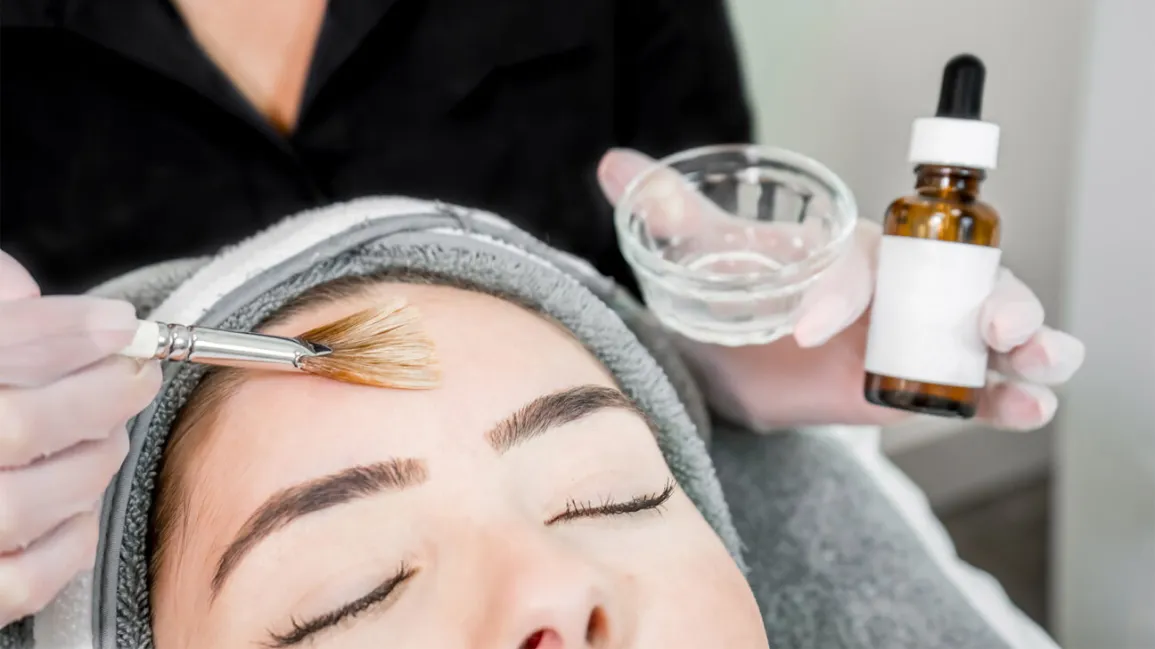Chemical Peels: Rejuvenate Your Skin with Science
In the quest for youthful, radiant skin, chemical peelings have emerged as a popular choice. These treatments, which use a variety of acids to exfoliate and rejuvenate the skin, can improve skin texture, reduce fine lines and wrinkles, and even out skin tone. In this article, we’ll explore the science behind chemical peels, how they work, and their benefits.
What Are Chemical Peels?
Chemical peels are cosmetic treatments that use a chemical solution to exfoliate the skin and stimulate cell turnover. They can be used to treat a variety of skin concerns, including acne, sun damage, and signs of aging. There are three main types of chemical peels:
- Superficial peels: These peels use mild acids, such as alpha hydroxy acids (AHAs), to exfoliate the outer layer of the skin (epidermis). They are used to improve skin texture and tone and to reduce the appearance of fine lines and wrinkles.
- Medium peels: Medium peels use stronger acids, such as trichloroacetic acid (TCA), to penetrate the middle layer of the skin (dermis). They are used to treat more pronounced wrinkles, acne scars, and uneven skin tone.
- Deep peels: Deep peels use strong acids, such as phenol, to penetrate the deeper layers of the skin. They are used to treat severe wrinkles, sun damage, and precancerous growths.
How Do Chemical Peels Work?
Chemical peels work by causing controlled damage to the skin, which stimulates the body’s natural healing process. The chemicals in the peel break down the bonds between dead skin cells, causing them to slough off. This reveals new, fresh skin underneath, which is smoother and more youthful-looking.
In addition to exfoliating the skin, chemical peels also stimulate the production of collagen and elastin, two proteins that are essential for healthy, youthful skin. Collagen helps to plump up the skin and reduce the appearance of wrinkles, while elastin helps to keep the skin firm and elastic.
Benefits of Chemical Peels
- Improved skin texture and tone: Chemical peels can help to smooth out rough, uneven skin texture and even out skin tone.
- Reduced fine lines and wrinkles: By stimulating collagen production, chemical peels can reduce the appearance of fine lines and wrinkles.
- Acne treatment: Chemical peels can help to unclog pores, reduce inflammation, and improve acne-prone skin.
- Sun damage reversal: Chemical peels can help to lighten sun spots and pigmentation caused by sun damage.
- Improved overall skin health: By stimulating cell turnover and collagen production, chemical peels can improve the overall health and appearance of the skin.
Conclusion
Chemical peels are a safe and effective way to rejuvenate your skin and achieve a more youthful, radiant complexion. Whether you’re looking to improve skin texture, reduce wrinkles, or treat acne, there’s a chemical peel that can help you achieve your goals. So why wait? Schedule a consultation with a skincare professional today and start your journey to healthier, more beautiful skin with a chemical peel.

